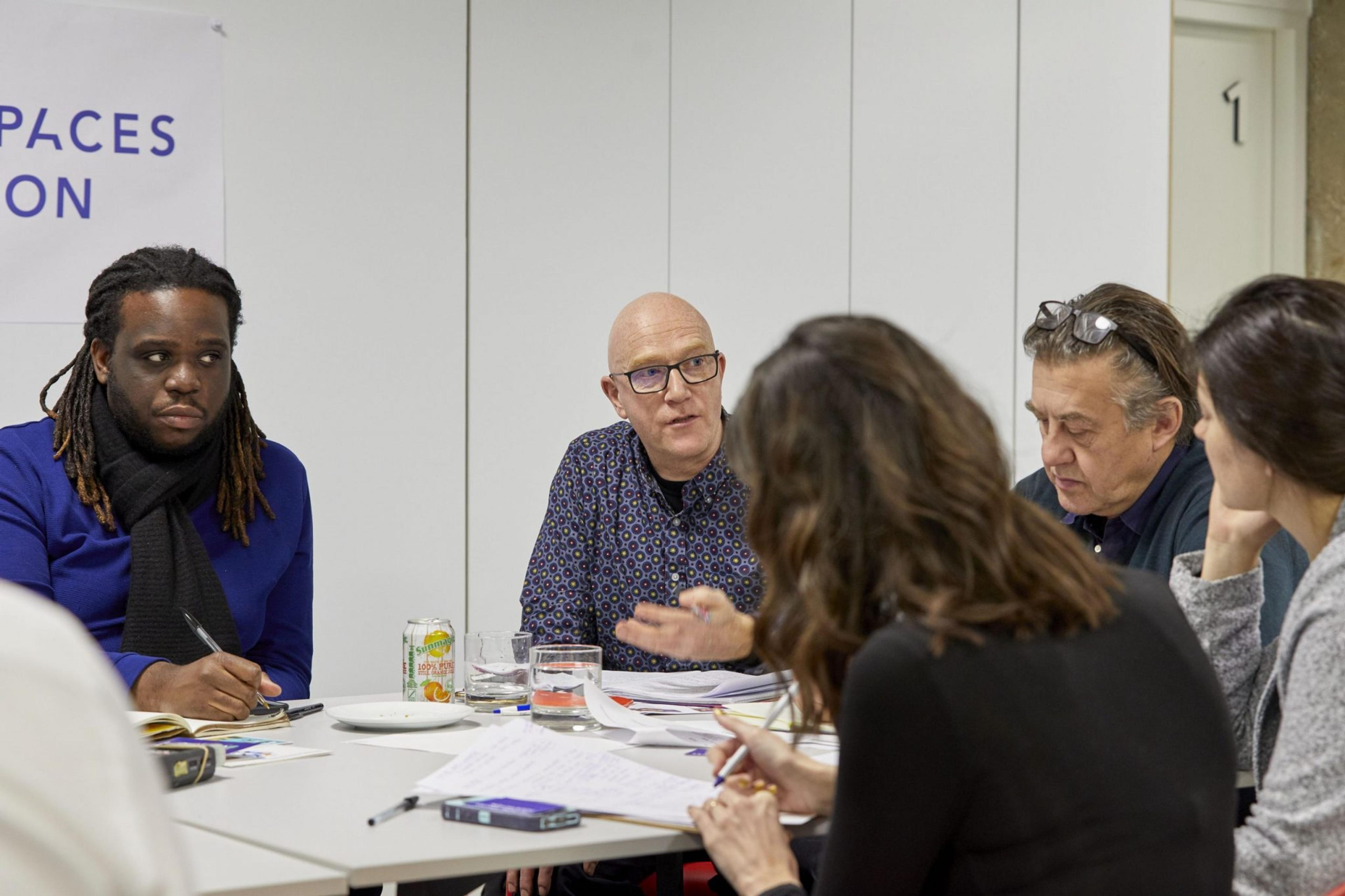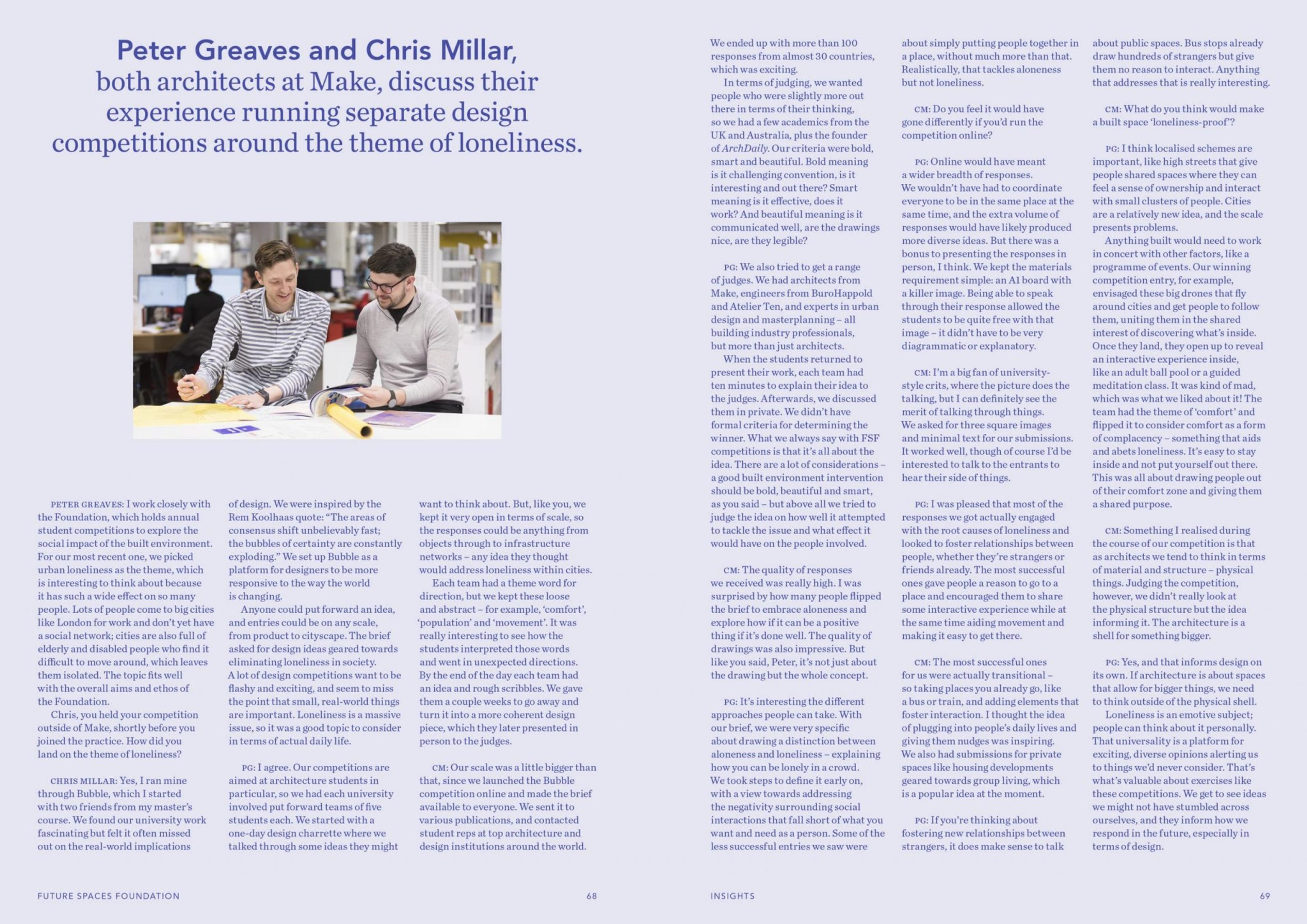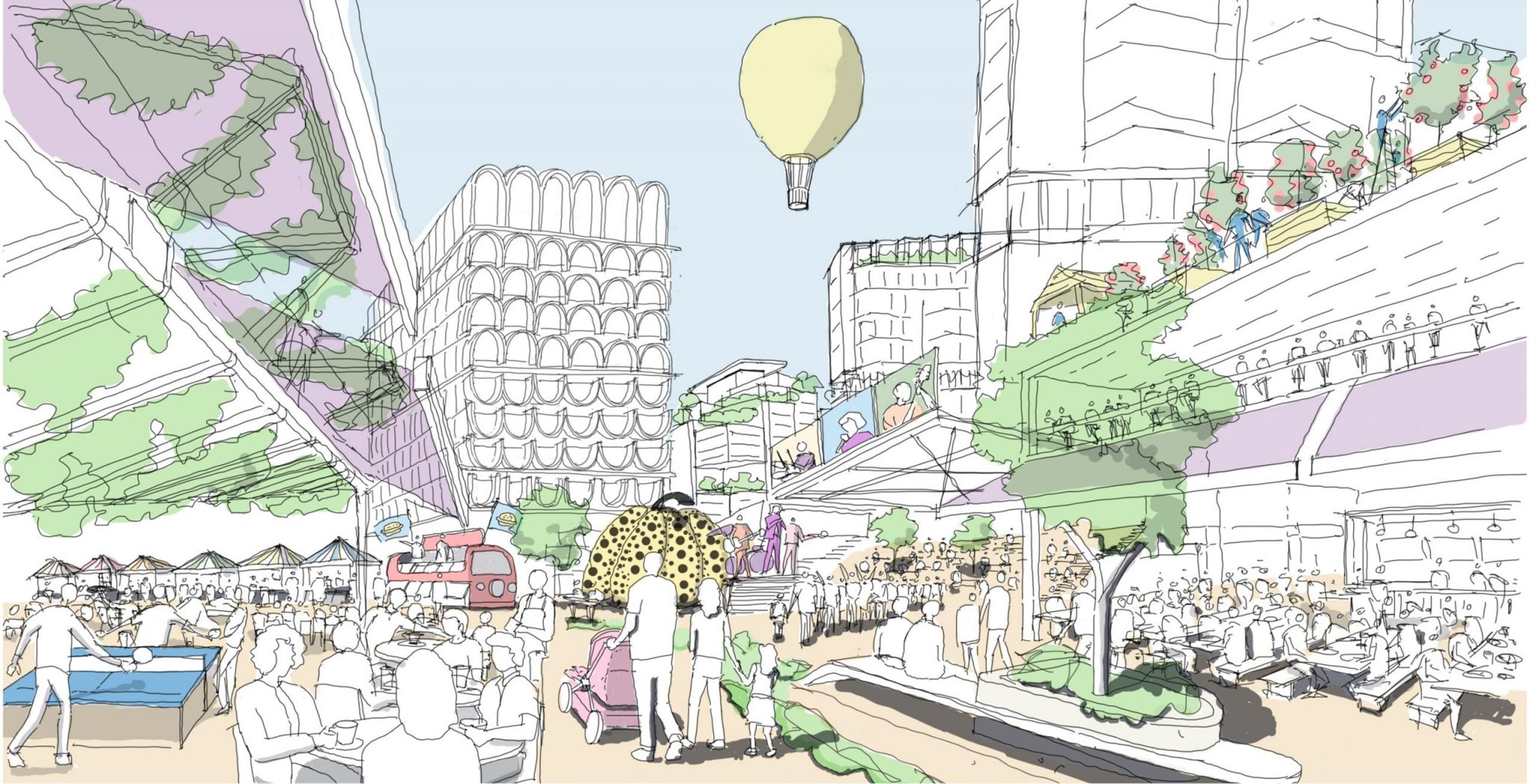- News
Future Spaces Foundation report highlights role of built environment in tackling urban loneliness
Government, local authorities and the property, planning and built environment industries can and must do more to mitigate urban loneliness, according to a new report released today from the Future Spaces Foundation.
Kinship in the City examines the relationship between urban loneliness and the built environment, and focuses on how the places where we live, work and socialise can facilitate social cohesion.
The report contains insights gleaned from a roundtable held by the Foundation and attended by designers, policy advisers, academics and community organisers. This started by observing the different ways urban loneliness affects people and went on to interrogate the role of the built environment in relieving loneliness, ultimately asking: ‘How can we shape the physical spaces around us to improve human connections?’.

18 formal ideas and recommendations have been identified that call on those shaping and working in the industry to move towards a culture of vitality and kinship and embed anti-loneliness principles in terms of policy, funding, services and design.
Some of the recommendations include:
- Prioritising community-focused approaches to design and planning;
- Investing in loneliness-related policymaking;
- Exploring new models for funding community spaces and services;
- Expanding representation of local voices; and
- Improving accessibility on public transportation.
Sara Veale, editor of the report, said: “The physical backdrop to our lives has a huge effect on how unified or isolated we feel day to day. At the Future Spaces Foundation, we’re particularly interested in the role the built environment plays in facilitating social cohesion. This has been a central question for us since the Foundation launched in 2013, and the right focus for this report in 2019, at a time when the topic of loneliness has gained significant global traction. Clearly there are environmental and situational factors that have caused this, many identified in the report, but we are focusing on where ineffective planning, policy and design have exacerbated or even triggered the issue.
“The report has collated ideas and recommendations to provoke, inspire and hopefully push the issue further up the agenda. Many of the ideas are part and parcel of holistic design, while others require a more top-down focused approach.”

Ken Shuttleworth, Chairman of the Foundation said: “This report, produced as part of our Vital Cities programme, builds on our existing body of research into the building blocks of dynamic, socially sustainable cities where individuals and communities can thrive. We know that urban design has an integral role to play in breaking down barriers within the modern city. The onus is on those responsible for planning and designing our cities to ensure we create inclusive spaces so that we’re not only building buildings, but also nurturing and developing social opportunities, support networks and spaces that prioritise physical and mental welfare. I’d argue this is now more important than ever before.”
The publication forms Phase 1 of a two-phase project. Phase 2 will seek to apply these ideas to a series of collaborative projects on the ground. The project also draws in a series of student design competitions and builds on the tireless work of campaigns and advocates around the world in drawing attention to the causes and devastating impact of loneliness.
